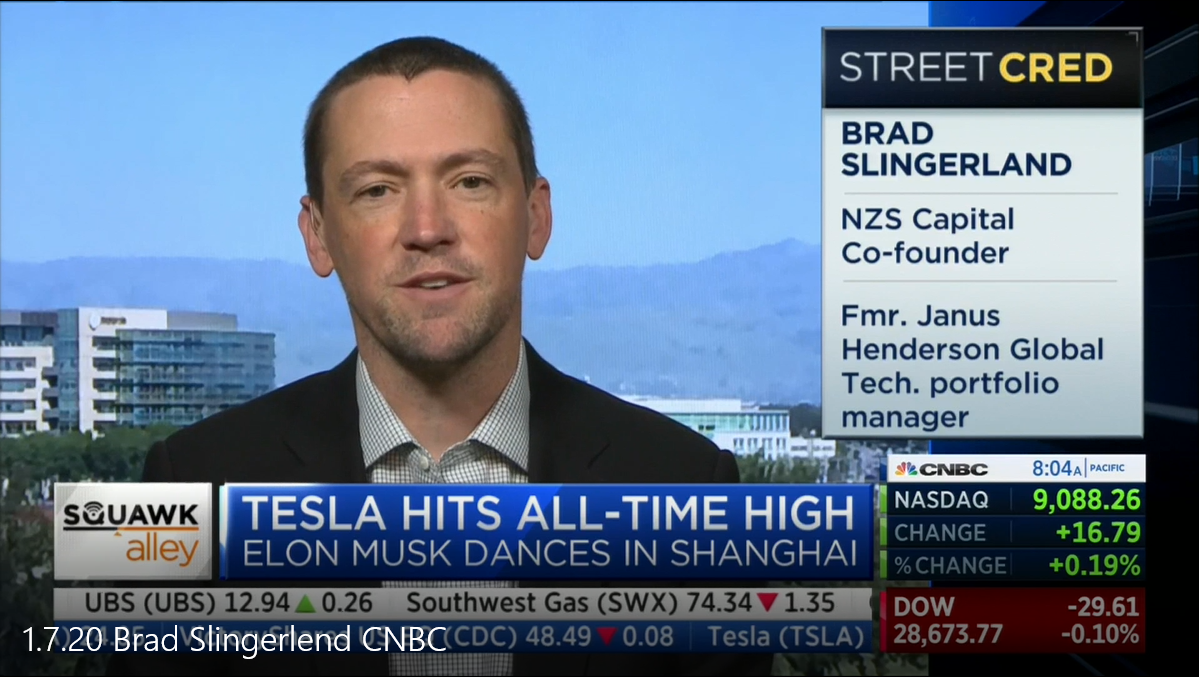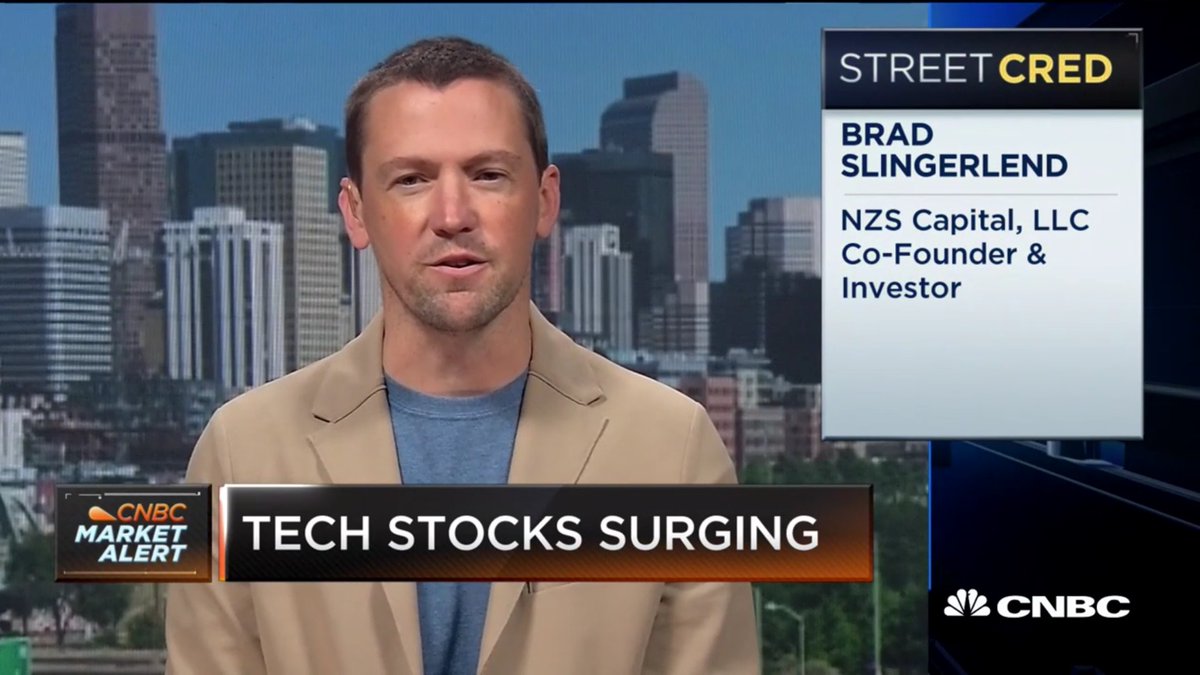A version of the op-ed below can be found on Marketwatch.
Brad Slingerlend also appeared on CNBC’s Squawk Alley to discuss the chip shortages and what the US can do about them.
For more on semiconductors, please see here.
It’s Time for US Tech Leaders to Bring Chipmaking Home
The US’s overdependence on Taiwan and South Korea for the manufacturer of critical leading-edge semiconductors is a threat to more than just automakers – it puts national security at risk. It’s time for leading US tech companies to pool their resources and build more chip fabrication capacity on home soil, say Brad Slingerlend and Jon Bathgate of NZS Capital.
By Brad Slingerlend and Jon Bathgate
Extreme shortages of graphic processor units (GPU) are an irritation, mainly for gamers and cryptocurrency miners. Audi, Volkswagen, Ford and Daimler idling auto plants because they can’t get semiconductors is more of a red flag. Relying exclusively on Taiwan for the production of critical chip components for key defense equipment such as the F-35 strike fighter is downright scary and utterly untenable from a national security standpoint.
No critical system or network you can think of -- defense, power, transport, finance, communications, health care -- can function without semiconductors, and our dependence on these components only deepens as the digitization of the global economy accelerates.
The most advanced semiconductors, which can cost as much as $500 million to design, are as fundamental to Tesla cars, iPhones and the cloud as the software that runs such platforms. Software may well be eating the world, but chips are the secret sauce, the engine driving digital transformation, and without them there could be no Information Age.
The problem is, while the US is the undisputed leader in the design of the advanced chips needed for the most demanding artificial intelligence, graphics, cloud computing and communications processes, companies including NVIDIA Corp., Advanced Micro Devices Inc., Apple Inc., Qualcomm Technologies Inc., Broadcom Inc., Alphabet Inc. and Amazon.com Inc. depend to a huge degree on Taiwan Semiconductor Manufacturing Co. Ltd. (TSMC) and Samsung Electronics Co. to produce their most bleeding-edge chips.
As a result, with the exception of Micron Technology Inc. and Intel Corp., the US lags significantly in the manufacture and testing of the most complex chips.
Over the past 20 years or more, the heavyweights of US chip design have earned billions of dollars and have seen their market valuations propelled into the trillions of dollars in part by the transfer of semiconductor manufacturing to Asia while completely de-emphasizing investment in production on US soil. While outsourcing to TSMC, in particular, and to South Korea’s Samsung to a lesser degree made sense from a business standpoint – these chipmakers have unrivalled know-how – it has also ramped fragility in the critical chip supply chain to a dangerous degree.
During the manufacturing, testing and packaging process, about 70% of the world’s most advanced chips pass through Taiwan, which Beijing insists is part of a greater China. Tensions over the island’s sovereignty resurfaced in late January when the USS Theodore Roosevelt aircraft carrier strike force was ordered into Taiwanese waters after China flew 13 warplanes – including nuclear-capable bombers -- over its neighbor’s airspace.
The threat is so grave that it is becoming increasingly apparent that leading US chip designers need to work together urgently, and with the support of the federal government, to reduce our dependence on Taiwan-based contract chipmaking.
In short, Apple, Amazon, Google, NVIDIA, AMD, Broadcom, Qualcomm, Intel and others need to form and fund a joint venture to build advanced chip manufacturing capacity on US soil. It will take time and money as foundries are almost unimaginably complex and expensive.
TSMC in January raised its 2021 capital expenditure budget by 47% to a record $25-$28 billion as it seeks to add capacity after setting new marks for quarterly revenue and net income. Among its planned investments is a $12 billion foundry in Arizona, scheduled to open in 2024, while Samsung is mulling a $17 billion expansion of its advanced logic chipmaking plant in Austin, Texas.
But these initiatives won’t significantly impact US chipmaking’s shortcomings. The Arizona foundry will have an annual capacity of about 240,000 wafers, less than 2% of TSMC’s output of 12-13 million wafers, while the technology deployed at the fab will be several years behind what TSMC and Samsung will offer in Asia. So to make a meaningful difference, a US joint venture may need pooled resources in the order of about $100 billion, as well as government incentives such as tax breaks and visa waivers to attract highly skilled manufacturing engineers from TSMC and Samsung, which should be a part of the coalition.
The project could build upon centers of excellence in US chipmaking. Micron has plants in Utah, Idaho and Virginia, Intel makes chips in Oregon, Arizona and New Mexico, and Globalfoundries Inc. took advantage of benefits such as cheap power and state incentives to build an advanced fab in upstate New York.
Without such action, the US risks adding to the hazard. While the US accounts for more than half of global semiconductor equipment making, chip design software and fabless chip revenue, its share of total installed semiconductor manufacturing is just 12.5%, or about 3 million wafers per month, according to the Semiconductor Industry Association. And because US fabless chip companies now almost exclusively rely on Asian contractors for advanced processes, the US share of global capacity is forecast to drop to 10% by 2030, while Asia’s climbs to 83%.
The shift to Asia, coupled with Intel's well-chronicled manufacturing struggles, mean the US is now without truly leading-edge chip manufacturing onshore for the first time since the invention of the transistor. But the decline can be arrested by combining the skills and resources of the best US chip designers with those of the leading global contract manufacturers along with state and federal governments. To ensure that the US’s national strategic and economic interests aren’t further jeopardized by an over-reliance on an island nation in the South China Sea whose sovereignty is in dispute, it’s imperative that all stakeholders -- public and private -- come together and create a 10- to 20-year plan to build significant semiconductor manufacturing capacity on US soil.
Brad Slingerlend and Jon Bathgate are investors at Denver-based NZS Capital.
More semiconductor views from NZS Capital are available here.



